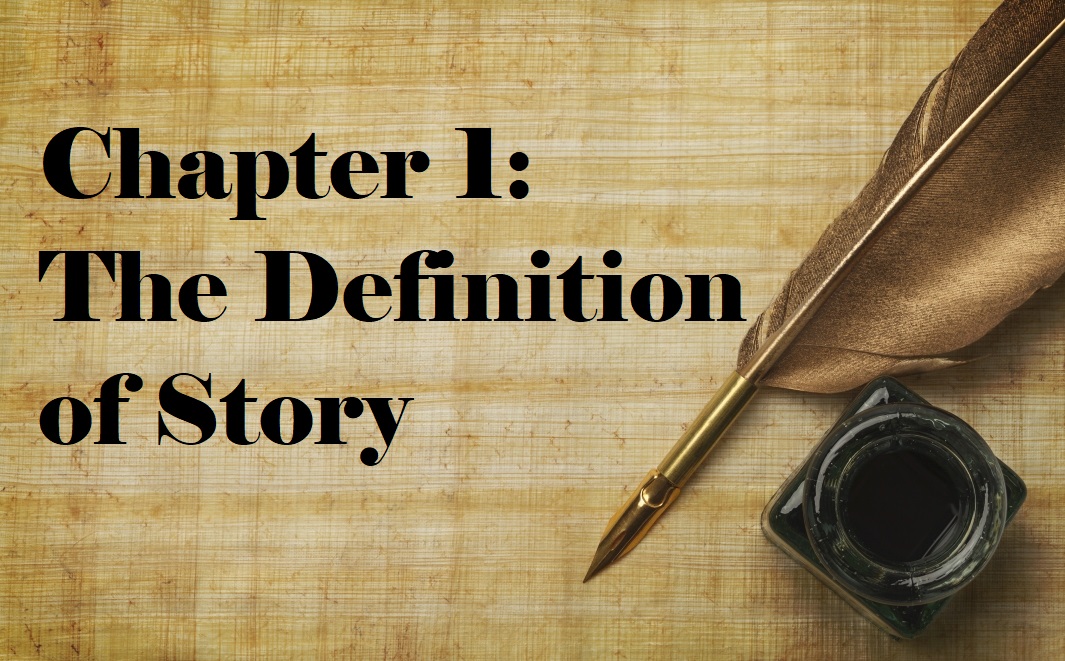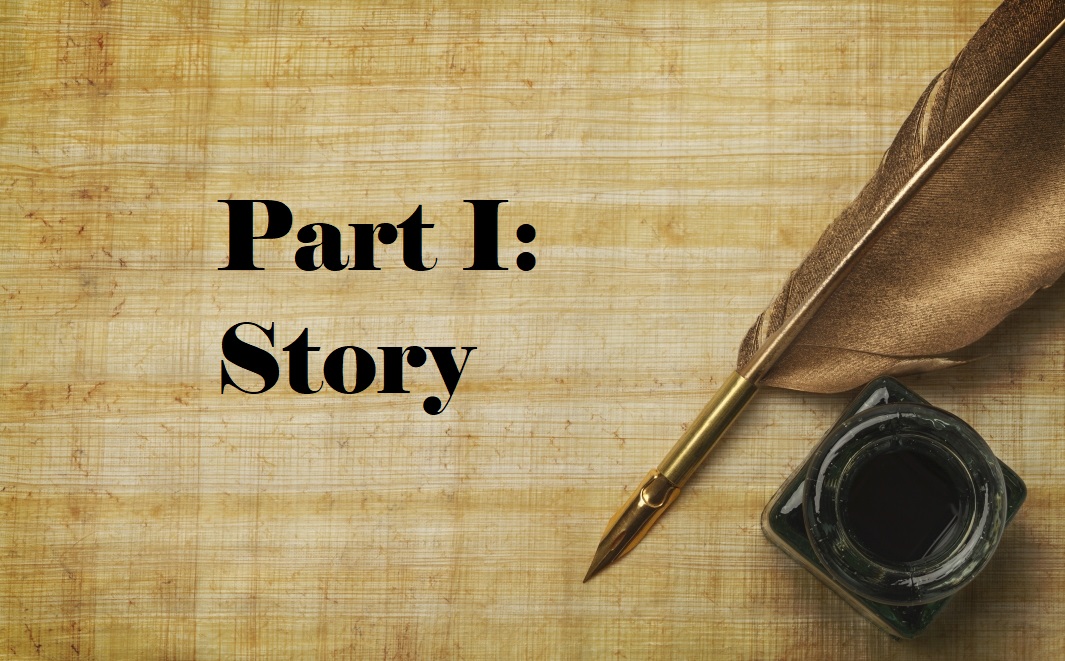Podcast: Play in new window | Download | Embed
Subscribe: RSS
 ReWriting the Human Story: How Our Story Determines Our Future
ReWriting the Human Story: How Our Story Determines Our Future
an alternative thought experiment by Nikola Danaylov
Chapter 1: The Definition of Story
We started our thought experiment with Kenneth Burke’s definition of story as “equipment for living.” Burke offers a great start but it is Jeff DeChambeau who really brings all the essential elements together in defining story as “information processing technology.” And, whether we realize it or not, it is among the oldest, most powerful, and longest-lasting technologies we have. But let us break it apart and take a closer look to see how and why DeChambeau’s definition works so well.
The first thing we ought to note is that story is about information. It started around the Cognitive Revolution 70,000 years ago when we had no writing and story was the vehicle that carried information from one person to another, one generation to another. Then we invented writing and moved from the oral to the written word. Story got even more powerful because we could suddenly send information both across space and time. Even today, in the age of 24-hour-news, social media, YouTube videos, and audio podcasts, the most popular and powerful memes still come wrapped in some kind of story. Because story was and continues to be the best vehicle for capturing, carrying, and transmitting information.
The second is that story is about processing – i.e. organizing said information in a way that provides new insight we did not have before. In other words, a story can take data and make sense of it. So it turns information into knowledge. Because there is a point to using story, a lesson to be learned. It is for this reason that Walter Benjamin notes: “The value of information does not survive the moment in which it was new. It lives only at that moment; it has to surrender to it completely and explain itself to it without losing any time. A story is different. It does not expend itself. It preserves and concentrates its strength and is capable of releasing it even after a long time.”
The third part is that it is technology because story is a conceptual tool created by Homo sapiens. For example, Kevin Kelly defines technology as “anything useful invented by a mind”. For Angus Fletcher “technology is any human-made thing that helps to solve a problem.” As any good tool, we can apply story to many a problem to help us understand, make sense of and deal with it. No story, no way to organize information, no way to process it, no way to make sense of, remember, or understand. Because story is ultimately about understanding and solving problems. [More on that in Chapters 6, 7, and 9.]
Story also has very specific features, characteristics, and structure that make it both powerful and unique. And it is neither simple narrative nor mere propaganda.
For example, story is different from narrative just like chronicles are different from history. Because chronicles and annals are simply a sequence of random chronological occurrences, without any connection, common theme, or thread. This is why they are so boring, tedious, hard to follow, and hard to remember. To turn a narrative into a story we need a unifying theme, a greater point of view, a moral, a lesson, a vision or a promise that will allow us to not only remember and organize but also process and understand what has occurred, why, and what could or should be next.
That is why Hayden White argued that the moment we brought story to narrative is the moment we gave birth to history. In the words of David Campbell “history proper requires the narration of events so that they are ‘revealed as possessing a structure, an order of meaning, that they do not possess as a mere sequence.” For both White and Campbell, it is only after embracing a meaningful structure that history proper breaks from the ranks of the ancient annals and chronicles, and claims its modern-day place among the other sciences.
Story is also different from propaganda because story is for the audience, not for the storyteller. Thus the storyteller is not the hero – the audience is. This is a critical point to understand. A story is not to serve the storyteller’s ego or agenda. It serves the audience – informing, entertaining, enriching, and teaching them something worthwhile. So a good story is not merely entertaining but transformational. It is a promise for something the audience longs for. That is why your press release is not a story. Neither is your latest news, greatest achievements, biggest product launch, volunteer work, and charity donations. Those are all about you. Those are all propaganda.
Finally, a classic story has a particular structure – i.e. it has a beginning, middle, and end. So, while the characters, places, or even the objectives can change, the structure remains mostly the same:
The Beginning: Shit happens. [That is why, for example, hard-boiled detective story-teller Raymond Chandler noted: “Trouble is my business”]
The beginning sets the problem and creates intrigue – i.e. it hooks the audience to the plot and whets their curiosity as per how the problem might be resolved. It spells out the who, what, why, when, and where?
The Middle: Shit happens to [good] people like us.
This is the struggle – where all the drama of the story unfolds, while our protagonists – who are in some important ways very much like us, struggle to overcome the problem. What was the struggle? What was done to overcome it?
The End: What we learn from shit.
This is the resolution – what did we learn from this particular story.
In short, the structure of a story is basically a roller coaster where we go down and up and down and up again. As David Sloly noted in his TEDx talk:
“Stories are like roller coasters – they’re only any good if they’re coming up and down.”


